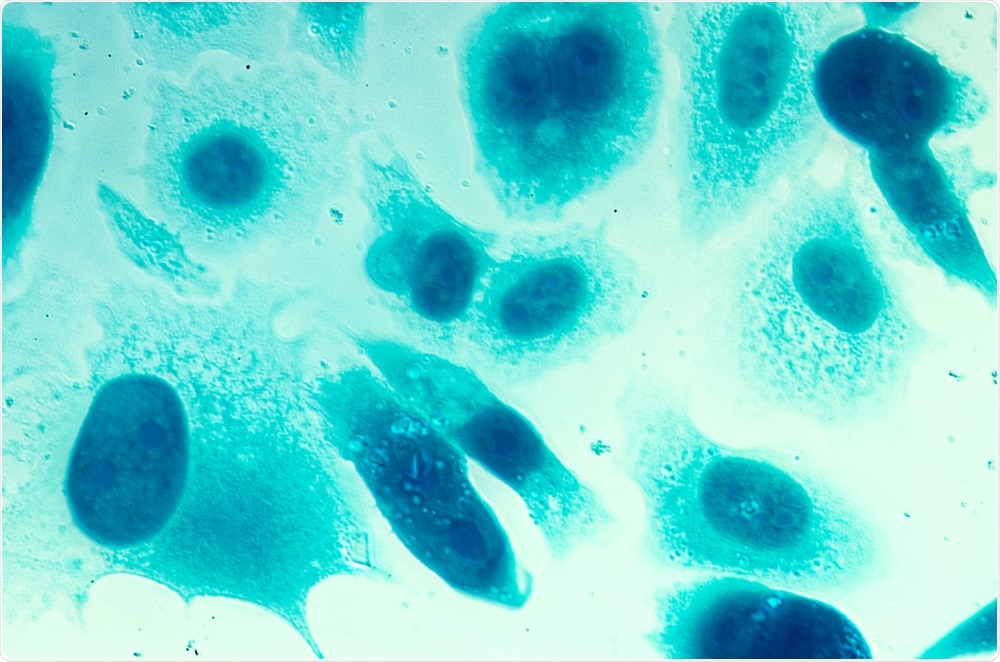
New prostate cancer test could bring an end to unnecessary biopsies
Researchers have developed a new urine test to diagnose aggressive forms of prostate cancer, which could mean an end to the unnecessary treatment of men with non-aggressive cancers.
 Heiti Paves | Shutterstock
Heiti Paves | ShutterstockThe test, which has been developed by researchers at the University of East Anglia and Norfolk and Norwich University Hospital, would allow doctors to differentiate between patients with aggressive prostate cancer who would need surgery and those with cancer that would progress so slowly that patient monitoring would be sufficient.
The test, which is called 'PUR' (Prostate Urine Risk), would enable doctors to predict whether treatment would be needed up to five years earlier than conventional methods do.
Lead author Shea Connell and colleagues hope that the breakthrough will result in many low-risk men avoiding unnecessary biopsies, active surveillance, and follow-up.
Mark Buzza, director of biomedical research programs at the Movember Foundation says: "The PUR test has enormous potential to transform the diagnosis and treatment of prostate cancer.”
Prostate cancer is the most common cancer among men in the UK with 47,000 new cases diagnosed annually. This type of cancer tends to develop slowly and may never cause any problems. It generally does not require treatment over the course of a man’s lifetime, but men with aggressive cancer do require treatment to prevent it from spreading.
However, doctors have difficulty predicting whether the cancer will become aggressive, which makes it difficult to decide on the appropriate treatment approach.
Invasive follow-ups could be a thing of the past
Currently, when a man visits their doctor and presents with symptoms such as frequent urination during the night, they are given a prostate-specific antigen (PSA) blood test, a digital rectal examination (DRE), an MRI scan or a prostate biopsy.
However, up to three-quarters of men with a high PSA level who have a biopsy do not actually have prostate cancer. This means many men experience unnecessary worry, monitoring and treatment, so routine prostate screening is not yet offered to men.
"A policy of 'active surveillance' has been developed as a way to combat this uncertainty but it requires invasive follow-ups and constant reminders that a patient has a cancer with an uncertain natural history,” explains Connell.
“This results in up to half of men who get monitored choosing to undergo treatment whether they need it or not. It's clear that there is a considerable need for additional, more accurate, tests."
Meanwhile, 15% of men without a raised PSA level are found to have cancer after all and in 15% of those cases, the cancer is aggressive.
Now, Shea and colleagues have developed the new PUR test using machine learning to assess gene expression in urine samples taken from 537 trial participants. By assessing the expression of 167 genes, the team found that a combination of 35 genes served as a more accurate risk signature for the disease.
Previous urine biomarkers tests have only been designed for specific purposes such as checking for prostate cancer when a patient has a repeat biopsy. The new test, on the other, identifies four PUR risk signatures that reliably enable men to be stratified by risk (low, intermediate or high) and determine how aggressive the cancer is going to be.
The researchers say that looking for the risk signatures in urine will identify patients who do not need a biopsy, even if they initially appear to be at risk.
A ‘new and versatile biomarker’ for prostate cancer
Clark says the really exciting finding was that the test could predict disease progression up to five years earlier than when standard clinical methods are used. It also identified men who were eight times less likely to require treatment within five years of being diagnosed:
"If this test was to be used in the clinic, large numbers of men could avoid an unnecessary initial biopsy and the repeated, invasive follow-up of men with low-risk disease could be drastically reduced."
The test is among a number of new tests, including other urine tests, as well as scans and blood tests, that are being developed by scientists in efforts to improve detection of the disease. Experts say a combination of such checks may eventually prove to be the best approach.
Georgina Hill from Cancer Research UK called the findings "promising," but said they need confirming in more patients before the test could be offered routinely.
Connell says a larger trial is now planned. He hopes the test could become available as an add-on to PSA testing within the next three years.
“PUR represents a new and versatile biomarker that could result in substantial alterations to current treatment of patients with prostate cancer,” write the researchers in the journal BJU International.
Journal reference:
Connell, S., et al. (2019). A four‐group urine risk classifier for predicting outcomes in patients with prostate cancer. BJU International.https://onlinelibrary.wiley.com/doi/full/10.1111/bju.14811

No comments:
Post a Comment